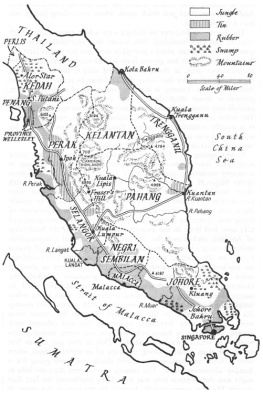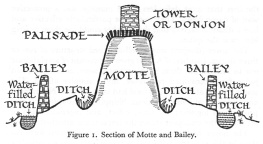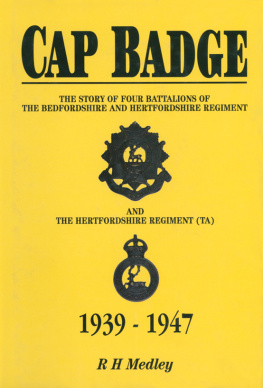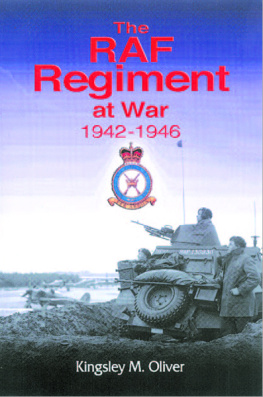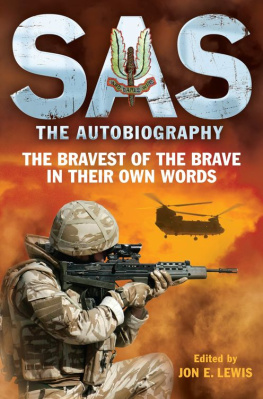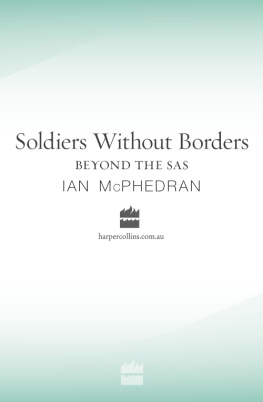THE SPECIAL AIR SERVICE by PHILIP WARNER
Index of Contents
Authors Note
Chapter 1 Definitions
Chapter 2 Origins in the Desert
Chapter 3 The Special Boat Squadron
Chapter 4 A Footing in Italy
Chapter 5 Reorganisation and the North West Europe Campaign
Chapter 6 The End of the War in Sight
Chapter 7 21 SAS (Artists): The Rebirth
Chapter 8 22 SAS
Chapter 9 The Oman
Chapter 10 Aden and Borneo
Chapter 11 The SAS Today
Appendix 1
Appendix 2
Appendix 3
Appendix 4
Appendix 5
Appendix 6
Philip Warner A Short Biography
Philip Warner A Concise Bibliography
AUTHORS NOTE
The story which follows is not of course a complete account of all the deeds of this remarkable regiment. If such a record could be compiled it would require several volumes and, even then, there would be gaps because some of those who took part in the early raids are dead or untraceable, and many of the later activities are unavailable for security reasons. Even where written records are full and available it has been necessary to make a selection for the sake of balance, but as far as possible each phase contains enough information to enable the reader to obtain a fair grasp of what was going on.
The author was not and is not a member of the SAS and, therefore, where praise or blame is recorded it is done quite impartially. It is indeed typical of the SAS that they should choose to have their history written by someone who is not a member of the regiment, and while giving every possible assistance over obtaining facts should never make the slightest attempt to influence the presentation or approach. And of course they are absolutely right. Regiments which fuss over every detail being recorded, and every incident being given its right weight, usually finish up with a history which is unreadable by even the most devout member, and quite incomprehensible to a person without military experience in the times and theatres concerned. The SAS view is in complete contrast. They believe that, if you appoint someone with a reasonably detached view to write up your regimental history, the facts will speak for themselves.
CHAPTER 1 DEFINITIONS
Although the Special Air Service regiment has been in existence for nearly thirty years, and has fought with distinction in Africa, Europe, the Middle East and the Far East, very few members of the general public have heard of it, and fewer still understand how and why it functions. This is not, perhaps, surprising because the SAS has had the wide variety of tasks which come to people to whom no military task is unacceptable, and the nature of its work meant that onlookers were seldom present. Unfortunately, though perhaps inevitably, what is known about the SAS is often distorted, and it is sometimes thought to be a collection of ruthless, expendable thugs, mainly engaged on death or glory missions. In these pages we shall give the bare and sober facts about the SAS, and endeavour to correct misunderstandings about the role and characteristics of this regiment; fortunately the whole story is so crammed with adventure, personality and extraordinary incidents that the truth is more exciting than the fiction.
'Special' forces are often the subject of envy, dislike and misunderstanding, because they are usually selected for secret missions trained on a wider variety of weapons than other soldiers may use: and are issued with equipment which is often more lavish than that provided to their parent units. Often they wear a distinctive marking, a badge or specially coloured beret, and this, whether they like it or not, gives them a certain glamour. Furthermore, they have a more exciting and varied life than the comrades they have left behind them. Some will envy them, some will curse them and others will say with considerable conviction: 'Better you than me, chum'. If a man is returned to his unit after having failed the training course he is scarcely likely to understress its hardships, which for him, without success to cheer him on, were much greater than for those who passed. The losing boat race crew is always more exhausted than the winners.
But there are, of course, plenty of first-class soldiers who would qualify for the SAS but who prefer to stay with their regiments. They are happiest, and at their best, going into battle with platoon, company or battalion.
Sometimes men who would be far more useful in other units volunteer for the SAS. Very often they are accepted; sometimes they fail. If the latter, no one thinks the worse of them; only that their best use is elsewhere. Nobody in the SAS looks down on any other unit of the army as being less important; no regiment in the entire army is so well aware of the essential attributes of what are often dismissed contemptuously as 'administrative' troops. The SAS knows by experience that a few men may do more damage to the enemy by destroying a railway line, a rear HQ, or even a cookhouse, than may be accomplished by an attack at battalion strength on the front line. The battalion might never reach the critical objective, its approach would be obvious and the key centre would have moved. Yet the destruction of that key centre, manned perhaps by unsoldierly administrative soldiers, might ultimately be worth more than the elimination of an entire division. The SAS man, the fighting soldier par excellence , suffers from no delusions about his own importance. He knows his role is vital but he knows that a cipher clerk, or a cartographer, or even the skill of the opposing general's cook, may in fact be more important to the success of the campaign than quite a number of daring soldiers. However, attitudes towards Special Forces can easily become critical and bitter, often through misunderstanding. Naturally enough, a regiment which is already below strength will resent losing some of its best officers, NCOs and soldiers, to a Special Force. Feelings will not be soothed if a man returns from a tour with the Special Force having learnt many new skills he can no longer use, but has forgotten much of the knowledge he requires in his normal regimental employment. The situation will not be improved if he is now obviously bored with the everyday routine of his own unit. Nevertheless, the majority of people who do tours of duty in Special Forces settle quickly in their own units, which often benefit from the enthusiasm and experience which have been acquired on the tour of duty.
Rather more serious is the sense of injustice which may be felt by other units when Special Forces are given tasks which seem to belong more properly to orthodox rather than special forces. Commanding officers are likely to ask, with some vigour, why Commandos, Paras, or SAS had to be used for this or that operation when their own units are trained, ready and longing for such an opportunity. This was mistakenly felt in 1958/1959 when the SAS went from Malaya to the Oman. The fact that the operation was brilliantly successful did not really mollify other units who considered that the task should have been theirs. It was said that this was scarcely the role for which the SAS was selected and trained. On the other hand, there was a good case for using the SAS, whose role is to function anywhere in the world at short notice; it was an excellent test of the regiment's adaptability, in the event no other unit could be available as quickly, and the lessons learnt were more likely to be disseminated to the rest of the Army through the SAS than through a unit which was not composed of personnel on temporary attachment.
There were other powerful reasons for using the SAS in the Oman; one was the fact that two infantry regiments had already tried unsuccessfully to scale the Jebel, and the other was the fact that the Parachute Regiment, who had been chosen to drop on the top, were banned by the Prime Minister; he felt that to commit a world-famous regiment in such a spectacular operation over-emphasised the importance of the situation. Consequently, one squadron of the SAS was sent as the nucleus of a small, highly-trained strike-force, and was subsequently joined by another squadron when the time had come for finalising matters.
Next page
